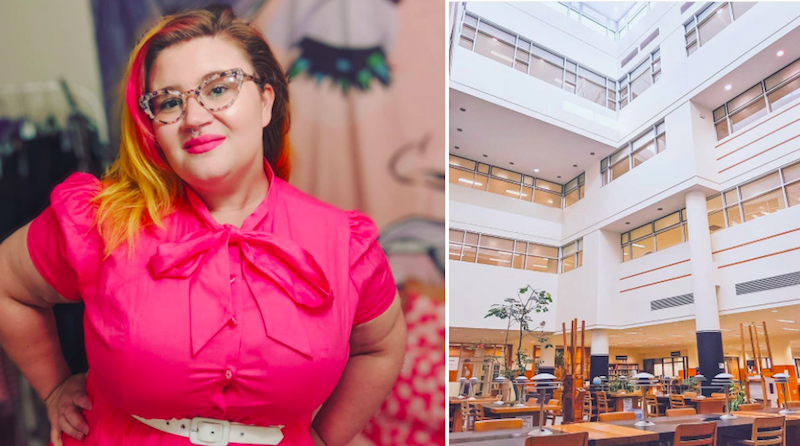
Welcome to Shhh…Secrets of the Librarians, a new series (inspired by our long-running Secrets of the Book Critics) in which bibliothecaries (yes, it’s a real word) from around the country share their inspirations, most-recommended titles, thoughts on the role of the library in contemporary society, favorite fictional librarians, and more. Each week we’ll spotlight a librarian—be they Academic, Public, School, or Special—and bring you into their wonderful world.
This week, we spoke to Ithaca, New York-based librarian and community organizer, Karina Hagelin.
*
Book Marks: What made you decide to become a librarian?
Karina Hagelin: When I was an undergraduate studying American Studies, I managed the library at University of Maryland’s Lesbian, Gay, Bisexual, and Transgender Equity Center for four years. I loved connecting students, staff, and faculty with the resources they needed, creating programming, and doing outreach and advocacy work. As my graduation date grew closer and closer, I asked myself what was next. Since I loved the work I did so much there, especially being able to help and educate folks, I decided to apply to UMD’s Master of Library and Information Science (MLIS) program, which had a Diversity and Inclusion focus area. The rest is history!
BM: What book do you find yourself recommending the most and why?
KH: Emergent Strategy: Shaping Change, Changing Worlds by adrienne maree brown because it builds on Octavia Butler’s work, effortlessly blending science and sci-fi, to offer radical self-help, society-help, and planet-help, so we can shape and change the future we want for ourselves. I think now more than ever, we need hope and strategy, of which Emergent Strategy offers both generously.
BM: Tell us something about being a librarian that most people don’t know?
KH: There are many different types of librarians, ways to be a librarian, and aspects of library work. For example, I think a lot of people think of Access Services when they think of librarians AKA the librarians who are on the front lines, working at the circulation or reference desks. However, I am an Instruction and Outreach librarian, so my job varies from teaching zine workshops, creating programming for our Makerspace, and serving on our diversity, inclusion, and belonging council.
BM: What is the weirdest/most memorable question you’ve gotten from a library patron?
KH: The most memorable question I’ve gotten from a patron was when a student wanted resources on HIV and AIDS to educate themselves and support a friend who had been recently diagnosed. This is one of the reasons I think trauma-informed librarianship is so important; we need to be equipped to help our communities that are facing trauma in a sensitive, empathetic, and warm way.
BM: What role does the library play in contemporary society?
KH: More and more libraries are moving towards incorporating trauma-informed principles into our institutions. According to SAMHSA’s Concept of Trauma and Guidance for a Trauma-Informed Approach, “A program, organization, or system that is trauma-informed:
I see this shift in the presence of movements like Librarians for Survivors, through libraries offering naloxone (Narcan) administration trainings to reverse opioid overdoses, and works like LIS Interrupted: The Intersection of Mental Illness and Library Work being published (forthcoming 2020 by Library Juice Press).
BM: Who is your favorite fictional librarian?
KH: Giles from Buffy the Vampire Slayer, obviously!
*
Karina Hagelin is a disabled, queer femme, artist, community organizer, and librarian currently based in Ithaca, New York where they work at Cornell University as an Outreach and Instruction Librarian. They are also a First-Year Academic Librarian blogger for the ACRLog. As an artist, their work is grounded in radical vulnerability, queer femme joy, survivor solidarity, healing justice, and gossip as a site of resistance. They are passionate about fatshion, critical librarianship, cats, and queer zines. Their research interests include American Studies, harm reduction, critical disability studies, queer theory, and zines/zine librarianship.
*
· Previous entries in this series ·

